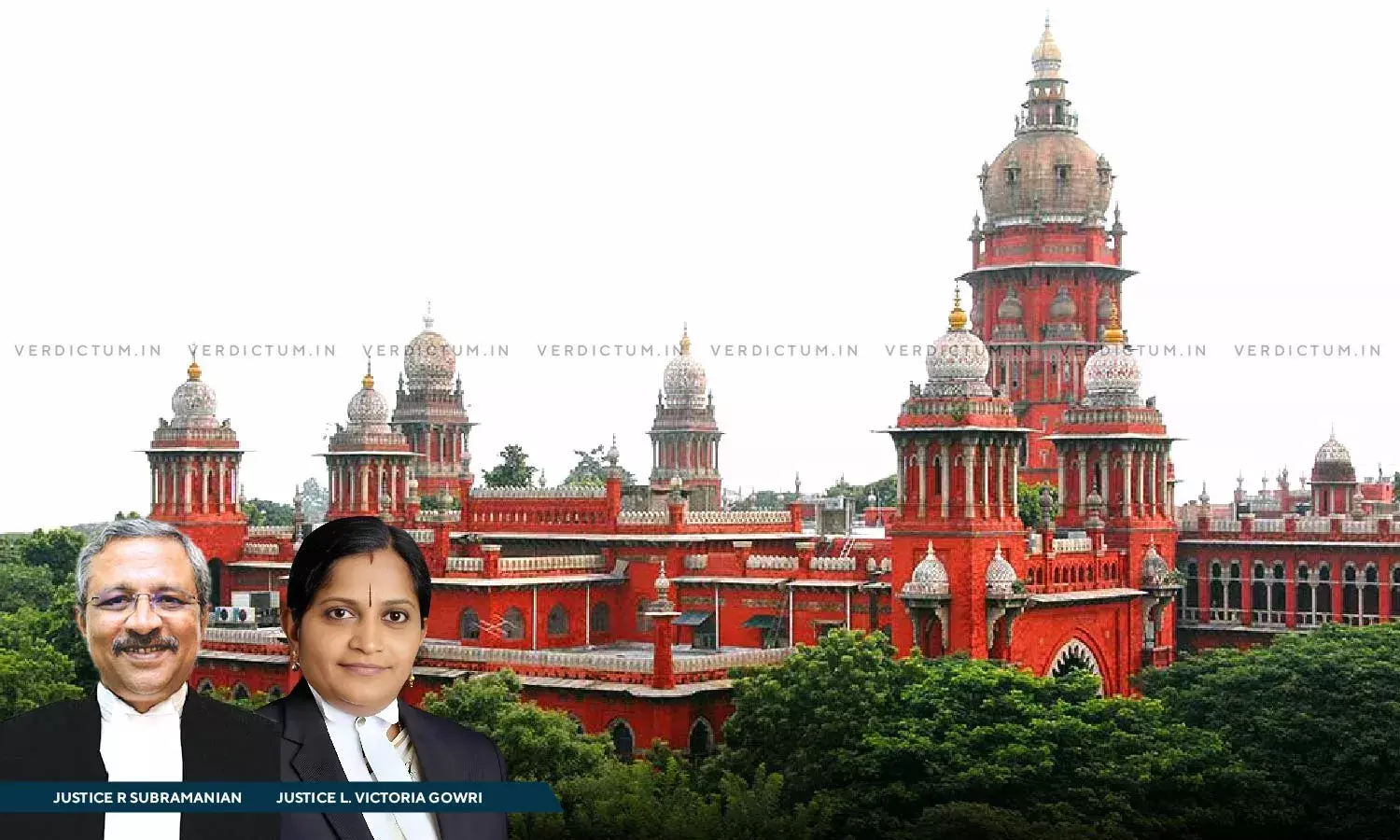If Central Law Is Declared Unconstitutional, It Is Void For Entire Nation: Madras HC Quashes Notifications Of Consumer Forum Recruitment

The Madras High Court recently quashed the two impugned notifications of the State Government of Tamil Nadu inviting applications from eligible candidates for appointment as Members in the District Consumer Redressal Commission and for appointment as Members (Nonjudicial / earmarked for women candidates) in the State Consumer Disputes Redressal Commission.
The Division Bench of Justice R.Subramanian and Justice L. Victoria Gowri while dealing with Writ Petitions filed under Article 226 of the Constitution noted that "The law is settled to the effect that once a provision of the Central Law or a Rule is held to be unconstitutional by a High Court, the same would stand effaced from the statute book in respect of the entire- Nation and it cannot be said that it would not be valid within the jurisdiction of the particular High Court and it would be valid in other areas."
The Writ Petitions filed by V.Sundararaj challenged the appointments on the ground that the notifications dated June 17, 2022, are based on the Rules framed by the Central Government in the year 2020 are bad in law, in view of the fact that some of the Rules particularly Rule 3(2)(b), 4(2)(c) and Rule 6(9) have been declared ultra vires the Constitution of India by the Nagpur Bench of the Bombay High Court on September 14, 2021, itself and as such the notifications issued based on the non-existent rule is bad in law.
It was also submitted before the High Court, that the said judgment of the Bombay High Court rendered on September 14, 2021, in W.P.No.1096 of 2021 has been confirmed by the Hon'ble Supreme Court on March 3, 2023, in Civil Appeal No.831 of 2023. Advocate G.Prabhu Rajadurai along with Advocate C.M.Arumugam appeared for the Petitioner while Advocate N.Mohideen Basha along with Additional Advocate General Veera Kathiravan assisted by Additional Government Pleader M.Sarangan appeared for the Respondents.
The Petitioner contended that once the Rules framed by the Central Government have been struck down by a High Court as unconstitutional, they are effaced from the statute book and any notification/s issued under those Rules or anything done pursuant to those Rules would be invalid unless it is shown that the Supreme Court had passed some orders in the appeal/ appeals against the judgment of the High Court reviving the said Rules.
On the other hand, the AAG contended that notifications were issued in view of specific orders passed by the Supreme Court. Considering the contentions raised, the High Court noted that the said order of the Bombay High Court has not been stayed by the Apex Court wherein only notice has been issued in the Special Leave Petition.
The High Court observed that the impugned notifications were issued way after the Suo Motu proceedings initiated by the Supreme Court to monitor states on this aspect. "The State had successfully dragged its feet on the appointments, despite the fact that the Hon'ble Supreme Court was monitoring the action taken by the States in filling up the vacancies in the Consumer Fora," noted the Bench.
Accordingly, the Court observed that "Hence, both the Writ Petitions are allowed and the impugned notifications are quashed. The State Government will take appropriate action to make appointments afresh in accordance with the directions of the Hon'ble Supreme Court in The Secretary Ministry of Consumer Affairs Vs. Dr.Mahindra Bhaskar Limaye and others made in Civil Appeal Nos.832 and 833 of 2023. There shall be no order as to costs. In the light of the disposal of the writ petitions, both the writ miscellaneous petitions seeking to impleading will stand dismissed. We make it clear that we have not dealt with any other notification apart from the impugned Notification."
Cause Title: V.Sundararaj v. The Registrar General High Court of Judicature, Madras, and Ors. [Neutral Citation No. 2023/MHC/2504]

